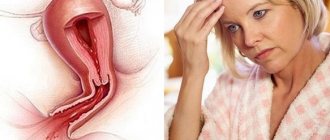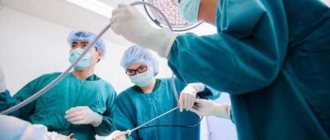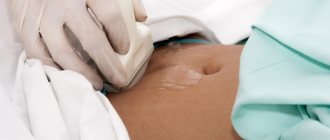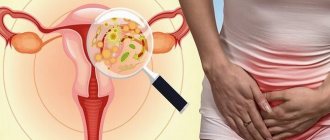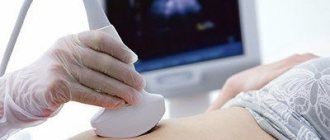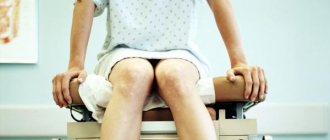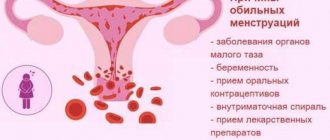The modern dynamics of life allow few people to live a measured and balanced life. Most of us are stressed and forced to eat irregularly. Therefore, the problem of failures in the body, even a very strong one, is familiar to many people.
Irregular and unbalanced nutrition is one of the reasons for the lack of vitamins and their absorption by the body. As a result, organs fail in their work. And the most sensitive are the endocrine and reproductive organs, in particular the ovaries and uterus.
How to make the ovaries work, medicines and traditional medicine recipes
In the female reproductive system, a special place is given to the ovaries.
It is in them that the maturation of eggs and the production of female sex hormones occur. They regulate the menstrual cycle and ovulation. Their well-functioning and correct work ensures a woman’s ability to conceive and give birth to a child. But sometimes disturbances in the functioning of the ovaries occur; they refuse to function properly, which is fraught with the development of a number of diseases, including infertility. For what reasons does ovarian dysfunction occur, how to make the ovaries work independently, what treatment methods exist, is it possible to use folk remedies to help in this situation, this will be discussed in our article.
Functional cysts
During menopause, cystic formations of this type appear quite rarely. They are more characteristic of the reproductive stage. However, sometimes they can also affect women in menopause, especially with incorrectly chosen hormonal treatment with synthetic drugs. An interesting feature of this neoplasm is that it appears much less frequently on the left ovary than on the right.
Functional cysts are neoplasms on the ovary that are formed as a result of the egg leaving the follicle and leaving it. But the follicle closed again and fluid began to accumulate in it. Such cysts can resolve on their own when the hormonal imbalance is corrected.
The reasons for this phenomenon are always hormonal. Cysts of this type are always formed due to hormonal imbalance. Therefore, sometimes they occur during menopause, as well as with an imbalance caused artificially (using HRT).
The phenomenon forms a typical clinical picture of a gynecological disease. Therefore, the main role in diagnosis is played not by symptoms, but by ultrasound results when the cyst was visualized.
Pain in the lower abdomen is quite sharp and localized, usually of high intensity, and associated with the menstrual cycle; Menstrual irregularities – early onset of menstruation, their long duration and intensity, etc.; Acyclic bleeding.
Other nonspecific symptoms may also appear, such as uncharacteristic or excessive vaginal discharge (which is extremely uncharacteristic of menopause).
Hormonal treatment is almost always prescribed. During the reproductive stage, such a cyst may resolve and form again during menstrual cycles (although this is not normal). This does not happen during menopause. If, after an initial visit to a gynecologist and monitoring the tumor for 2-3 months, its reduction is not detected, then hormonal treatment is prescribed.
It is carried out with combined medications, usually oral contraceptives. As a result, menopause may prolong, but its severity will decrease and the cyst will resolve.
Causes of ovarian dysfunction
The reasons why the ovaries may refuse to “work” are quite numerous and depend on the influence of many factors. Let's look at the most common causes of ovarian dysfunction.
Inflammatory or infectious diseases of the reproductive system
These include diseases of the ovaries, uterus and its appendages. Diseases in advanced or chronic form are especially dangerous.
Endocrine system disorders
Problems with the thyroid gland, adrenal dysfunction, diabetes mellitus of various stages, all this leads to hormonal imbalance, and as a consequence to improper functioning of the ovaries.
Interrupted pregnancy (abortion, miscarriage)
The greatest danger for ovarian dysfunction and infertility is abortion during the first pregnancy.
Uses of medicines
Some drugs can cause ovarian failure, especially their uncontrolled use.
Previous surgeries
This applies especially to operations on the female genital organs.
Misuse of contraceptives
This concerns not only the use of hormonal drugs, but also the incorrect installation of the uterine device.
Impact on the nervous system
Stress, overexertion, nervous exhaustion, depressive states are factors that can cause ovarian imbalance.
Bad habits
For example, smoking affects hormonal levels and affects the normal development and growth of eggs.
Change of habitat
For example, a sharp change in climatic conditions can cause disruption of the ovaries.
As we can see, there are quite a few factors that cause the ovaries to stop working. Their influence leads to partial or complete functional loss of performance of an organ, the ovary, which is so important for every woman.
What is a “dormant ovary”
The term “dormant ovaries” is not used in official medicine. This is a generally accepted colloquial form that refers to a woman’s health condition due to ovarian dysfunction.
This concept replaces the medical names - ovarian dysfunction, premature menopause, premature ovarian failure.
Most infertile women face this problem. To understand how to wake up the “sleeping ovary,” doctors prescribe a series of tests and examinations.
Only after finding out the cause can you begin to treat the pathology. When dysfunction of the gonads occurs over the age of forty-five years, this may be a sign of the onset of menopause.
Irritability is one of the signs of ovarian dysfunction
Insufficient functioning of paired female glands is manifested by the following symptoms:
- dryness of the mucous surface of the vagina and external labia;
- unstable menstrual cycle, accompanied by irregularity at first and then a complete cessation of discharge;
- increased sweating, periodic sensations of intense heat (“hot flashes”) in the face;
- unstable states of the nervous system, manifested by irritability, insomnia, mood swings;
- weakening libido.
At the biochemical or latent stage of the disease, the only symptom is infertility, which cannot be explained by any organic factors. It is with this problem that women most often turn to the gynecologist with a request - how to awaken the ovaries in order to get pregnant.
Causes of dysfunction
Numerous studies are being conducted to understand the cause of the development of pathology. In most cases, the etiology of dormant ovaries remains unknown.
Ovarian dysfunction due to galactosemia
Today, the following main causes of early dysfunction of the female reproductive glands have been established:
- genetic disorders manifested in structural chromosomal abnormalities and monogenic mutations;
- autoimmune lesions;
- hereditary syndromes – blepharochimosis-ptosepicanthus, congenital disorder of glycosylation, galactosemia;
- infections;
- idiopathic form.
Treatment methods for ovarian dysfunction. Drug treatment
How to make the ovaries work? Where should you start? Let's figure it out together.
First of all, if you are afraid that there has been a malfunction in the functioning of your ovaries, then you should immediately seek help from a gynecologist. To establish or confirm a diagnosis, you will also need to undergo certain tests (for example, blood tests for hormones) and undergo special procedures (for example, ultrasound examination) to identify the causes of dysfunction.
Depending on the factors, as well as the degree of functional impairment, the following treatment methods can be distinguished:
- drug treatment;
- drug-free treatment;
- surgical intervention.
Non-drug treatment involves, first of all, changing your diet. To normalize the functioning of the ovaries, you need to include in your daily diet foods rich in vitamins A, B and C. Refuse “unnatural” foods containing various food additives, dyes, and also limit the consumption of alcoholic beverages.
Surgery is used extremely rarely and only when other treatment methods have not brought positive results. Consists of surgical removal of the affected part of the ovary. Used as a last resort.
Drug treatment includes a comprehensive solution to the problem.
It can be divided into the following stages:
- elimination of the immediate causes of ovarian dysfunction;
- treatment of symptoms requiring urgent intervention (for example, blood loss);
- normalizing hormonal levels.
The use of a medicinal method is particularly effective for restoring the function of conception and treating infertility in women. So how do you get your ovaries working to get pregnant?
In this case, drug intervention consists of stimulating the ovaries with various medications, such drugs include:
Important! Drug treatment is used only after a doctor’s prescription and under his strict supervision.
How to increase the chance of pregnancy
In order for conception to occur as quickly as possible, you need to lead a healthy lifestyle, undergo therapy for gynecological diseases, eat right, give up bad habits, fasting and mono-diet.
Food is best cooked by steaming, boiling and baking. Products with harmful additives, dyes and preservatives should be excluded. It is recommended to avoid stress and exercise.
To track “lucky” days, it is useful to use ovulation tests and plot your basal temperature. Taking vitamin and mineral complexes has a beneficial effect on fertility.
If pregnancy does not occur, then you need to consult a gynecologist, undergo examinations and follow the doctor’s recommendations. This will help you conceive and give birth to a healthy baby.
Folk remedies for restoring ovarian function
Treatment of ovarian dysfunction with medications is sometimes associated with side effects from medications. How to make the ovaries work using folk remedies? This question often arises in the process of solving a problem using alternative methods.
Traditional medicine in this case can share effective and time-tested recipes, here are some of them:
- Decoction of plantain seeds. It is made at the rate of 1 teaspoon per half glass of water. Infuse for 3-4 hours, take three times a day.
- Decoction of linden and sage flowers. Brew in equal proportions. Take up to 3 times a day.
- A decoction or syrup made from rose petals has also proven to be an effective remedy. The syrup is supplied at the pharmacy and used according to the instructions.
There will also be a positive result from the use of aloe leaves. To do this, cut leaves are placed in the refrigerator for at least five days to ferment. Then they are crushed and mixed in equal proportions with honey and butter. Use 1 tbsp twice a day. spoon.
In addition to oral use, douching with various decoctions is used in complex therapy. Decoctions of yarrow, sweet clover leaves and blueberries are suitable for this.
Follicular cysts
These are cysts of a different type that form in the ovarian follicle. They are much more typical of menopause than the previous type. During menopause, they rarely resolve on their own. Typically, targeted and comprehensive hormonal treatment is needed. In some cases, even surgery is required.
Such a cyst is also formed as a result of the accumulation of fluid in the follicle. But this happens for other reasons. The formed egg does not leave the follicle at all.
As a result of excessive accumulation of fluid, a cyst first forms there, and then inflammation begins. It is from the moment inflammation occurs that the symptoms become pronounced and obvious. For example, treatment of polycystic ovary syndrome is often carried out in this way.
As in the previous case, such cysts are hormonal in nature. They are formed as a result of a malfunction that is characteristic of menopause.
It is similar to the previous case, except for its severity. Usually, such neoplasms hurt quite a lot. Acyclic bleeding and cycle disorders are also typical for them.
In addition to hormonal treatment, the same as described above, surgical treatment is used. It is prescribed for severe polycystic disease, when the cyst cannot be treated with other methods, etc. Cystectomy is usually prescribed using the laparoscopic method. The laparotomy method is prescribed if the cyst is very large, atypical, actively growing, or there is a suspicion of its malignant degeneration.
How to make the ovaries work during menopause
Everyone knows that during menopause the ovaries change to a different mode of operation. Due to the characteristics of the body, menopause in a woman can begin at an early age, not typical for menopause. So how to make the ovaries work during menopause? Where should you start to prolong the functioning of this organ?
Firstly, your lifestyle should be normalized. You need to start with your diet, including foods that promote the production of the hormone estrogen. These are legumes, as well as vegetables rich in vitamin A and B. Limit the consumption of salty, fatty, fried foods. Provide reasonable physical activity and good rest.
Secondly, you cannot do without taking estrogen-containing hormonal drugs such as Estrofem, Ovestin, Femoston, Divi Gel and others. It is dangerous to prescribe these drugs to yourself! Uncontrolled use can lead to undesirable consequences and even the formation of a tumor.
Thirdly, you can try using plant-based estrogen preparations. For example, Remens, Mastodinon, Klimadinon, etc. This group of drugs can somewhat slow down the menopausal processes.
The same folk remedies can also restore the functioning of the ovaries during menopause.
The main thing to remember is that taking care of yourself and your health can prevent malfunctions of such important reproductive organs as the ovaries.
Now let’s watch a video on how to normalize hormonal levels and make the ovaries work:
- Download Original]» class=»imagefield imagefield-lightbox2 imagefield-lightbox2-240-180 imagefield-field_imgarticle imagecache imagecache-field_imgarticle imagecache-240-180 imagecache-field_imgarticle-240-180″>
- Download Original]» class=»imagefield imagefield-lightbox2 imagefield-lightbox2-240-180 imagefield-field_imgarticle imagecache imagecache-field_imgarticle imagecache-240-180 imagecache-field_imgarticle-240-180″>
- Download Original]» class=»imagefield imagefield-lightbox2 imagefield-lightbox2-240-180 imagefield-field_imgarticle imagecache imagecache-field_imgarticle imagecache-240-180 imagecache-field_imgarticle-240-180″>
- To post comments, please login or register
Re: How to make the ovaries work, medications and recipes.
Lately I’ve been thinking about hormonal medications; during menopause, the only medications I took were Cyclim, nothing else. Is it possible to suddenly switch to hormonal pills after taking dietary supplements and is there a high risk of side effects?
Normal condition
What condition of the ovaries during menopause can be considered normal? It is worth noting that the organ undergoes a number of natural changes that are considered normal. During premenopause, their functionality decreases, they decrease in size and begin to produce much less hormones. In postmenopause, they stop functioning altogether and hormones are no longer produced.
In addition to size, the structure and shape of the ovaries change during menopause. At the very beginning of menopause, the organ is still slightly reduced in size. During this period, although in small quantities, follicles are still present in the ovaries. As the process develops, the organ changes even more, and after six months to a year, only a few follicles are found in menopause.
After this, the last menstruation (menopause) occurs. The ovaries no longer function after menopause. They shrink several times and seem to wrinkle. Over time, their tissue is replaced by connective tissue, which does not have any functions. The size of the ovaries during this period is about 2.5 cubic meters. cm, whereas immediately after menopause - 4.5 cubic meters. cm.
A way has been invented to “undo” menopause and give women a chance to get pregnant again
Scientists have been able to turn back the clock and again give women with early menopause a chance to become mothers.
However, before the technique can be widely used, it is necessary to conduct a number of studies.
Menopause should not be the end of the period of fertility, that is, a woman's ability to give birth to a child. At least that's according to a team of scientists from Greece who have found a way to restore or rejuvenate the ovaries after menopause, allowing older women to have their own eggs again.
The team of researchers claims that their method restarts menstrual periods in women who have already entered menopause, including even those who have not had a period for five years. The technology will be thoroughly tested and, if proven effective, it will help women with early menopause, for example, become pregnant. In this case, it will not only allow women to have offspring, but will also prevent the harmful effects of early menopause on health.
In addition, the Greek method will be useful to the population of developed countries, where women are increasingly choosing a career and only later, having firmly found their feet, begin to think about children. However, the body of representatives of the fair sex at this age is often no longer ready for such serious tests. Now such ladies are offered to freeze their eggs for future IVF procedures (which, by the way, can be dangerous). Taking into account all of the above, extending the period of fertility can become a worthy and more reliable alternative to existing methods.
It is believed that women are born with all their eggs. Between puberty and menopause, this number of eggs declines steadily. Then, around the age of 50, which is when menopause typically occurs, the ovaries stop releasing eggs.
But, scientists note, by this time most women become infertile in one way or another, since ovulation (the release of an egg) begins to occur less and less on the eve of menopause.
According to Konstantinos Sfakianoudis, a gynecologist at the Greek fertility clinic Genesis Athens, among other things, menopause also comes too early for many women. Statistics show that one percent of women experience menopause at the age of 40 due to health conditions or, for example, treatment for cancer.
Scientists have decided to help women with early menopause and turn back the “fertile” clock. To do this, Sfakianoudis and his colleagues turned to a special therapy that helps wounds heal faster.
The technology uses platelet-rich plasma (PRP), which is produced by centrifuging a sample of human blood to isolate growth factors - molecules that trigger the growth of tissues and blood vessels.
The technique is widely used to speed up the recovery of damaged bones or muscles, although its effectiveness is still unclear, experts say. RPR treatment stimulates tissue regeneration.
Greek researchers found that PRP may also be able to rejuvenate older ovaries. Scientists injected PRP into the ovaries of women who had already reached menopause. According to experts, they were able to restart menstrual cycles, which gave them the opportunity to subsequently obtain and fertilize the eggs that the women's ovaries produced.
“We had a patient who went through menopause five years ago, at the age of 40. Six months after the scientists injected PRP into her ovaries, she returned to menstruating for the first time since menopause,” says Sfakianoudis.
It is noted that since then scientists have been able to collect three eggs from this patient. They then successfully fertilized two eggs using her husband's sperm. These embryos are currently frozen as scientists intend to fertilize at least one more egg before implanting them into the patient's uterus.
Scientists say they don't fully understand how the technology works, but it appears PRP stimulates stem cells found in women's ovarian tissue. Some research suggests that small numbers of stem cells continue to produce new eggs throughout a woman's life, but experts are still exploring this area.
What foods should you eat for uterine health?
One of the main purposes of women in this world is to give new life. A huge number of extraordinary processes occur in the female body, including the formation and gestation of a fetus.
The main organ of the fair half of humanity is considered to be the uterus - a hollow organ within which the future baby is born and lives until the birth.
Caring for the health of the reproductive system is a primary task for both expectant mothers and all women.
There are a number of factors that have a direct impact on health in general and the harmonious functioning of the uterus in particular. First of all, hypothermia is strictly contraindicated for women, so always dress appropriately for the weather, do not sit on damp ground or rocks, and wear warm underwear in winter.
Close attention should be paid to personal hygiene. Sports play an important role in the condition of the uterus, because any workout is not only the formation of a muscular corset, but also the strengthening of internal organs. It is especially useful for women to engage in swimming, yoga, Pilates, bodyflexing, dancing and race walking.
Well, of course, you should take care of a balanced diet. After all, your well-being, mood and state of health directly depend on the intake of necessary biologically active substances from food. There are a number of products that have a beneficial effect on the uterus and other organs of the female reproductive system.
Foods good for the uterus
Sea fish of fatty varieties and caviar. Mackerel, salmon, salmon, trout, chum salmon, herring, halibut and other types of fatty fish, as well as caviar and fish oil, contain omega-3 fatty acids, without which the normal functioning of the fallopian tubes and the uterus itself is impossible. PUFA is a powerful antioxidant that protects against cancer.
Avocado. Contains omega-3 PUFAs, folic acid and youth vitamin – tocopherol in fairly high concentrations. Regular inclusion of an exotic fruit in the diet improves the reproductive health of women, being a good prevention of the occurrence of uterine dysplasia.
Dog-rose fruit.
Due to the high content of natural antioxidants - ascorbic acid, vitamin E and carotenoids, fruit drinks improve the tone of the uterus, protect women's bodies from oxidative stress and help maintain optimal oxygen levels in the blood, which is especially important during pregnancy. Separately, it should be noted the effect of rosehip infusion on immunity, on which the body’s ability to resist any infectious agents depends.
Eggs (chicken, quail). In addition to fat-soluble vitamins and protein, eggs are an excellent source of lecithin, which is directly involved in the absorption of vitamins, liver regeneration, and brain performance. Protein compounds are necessary for the full development of the unborn baby, and lecithin affects the development of his brain even in the womb.
Cold-pressed vegetable oils (soybean, flaxseed, olive, pumpkin, nut, corn, sunflower). An excellent source of fats, omega-3 and vitamin E. These chemical compounds ensure the normal condition of the uterine epithelium.
Leafy greens. Parsley, dill, spinach, arugula, celery, basil, coriander contain a whole complex of vitamins, minerals, trace elements, antioxidants and fiber necessary for the health of the body. In addition, greens are considered a natural source of magnesium, an essential element for the formation of the nervous system of the unborn baby.
Seaweed and seafood. They contain vitamins B, A, C, E, F, D, P, and a high concentration of iodine in a bioavailable form, which is responsible for the health of the endocrine system of the mother and unborn child.
With optimal intake of iodine in the body, the protective abilities of the uterus increase, which reduces the risk of cancer. In addition, seaweed phytonutrients lead to normal metabolism.
Feijoa is considered another excellent source of iodine and many trace elements.
Dairy products. They are an important component of the diet of people of all ages. Milk and fermented milk products are a valuable source of calcium, phosphorus, B vitamins, retinol - elements responsible for the development of the musculoskeletal system of the unborn child.
During pregnancy, women need calcium to strengthen their bones and spine.
Kefir, cottage cheese, natural yogurt, fermented baked milk, cheese, yogurt, whey saturate the body with minerals, improve the condition of the intestinal microflora, preventing dysbacteriosis, thereby increasing immunity.
Vegetables. Pumpkin, bell peppers (especially yellow and red) and carrots are extremely beneficial for the uterus - natural sources of carotene (provitamin A), potassium and magnesium, on which the harmonious state of the uterus depends.
Fiber and pectin compounds in raw vegetables make it easy to enhance intestinal motility, thereby helping the body quickly get rid of waste products through bowel movements.
During pregnancy, it is very important to empty the intestines on time to prevent the baby from being poisoned by waste products.
Give up bad habits for uterine health!
There are products that cause serious harm to women's health in general. We are talking about alcohol, nicotine, spicy, smoked and fried foods high in trans fats. It is undesirable to consume chips, French fries and fast food - sources of empty calories and carcinogens.
Toxic substances entering the body accumulate and can cause uterine cancer. Hot, overly spicy dishes lead to congestion of the vessels of the uterus, as a result of which they stretch, and in exceptional cases they can burst, causing uterine bleeding.
Alcoholic drinks impair blood supply to the uterus, causing artery spasms. Smoking also leads to systematic spasms of blood vessels.
By adhering to the rules of a healthy diet and leading an active lifestyle, you can maintain women's health in ideal condition for many years. Be happy!
Source: https://babyeph.ru/zdorovoe-materinstvo/kakie-produkty-sleduet-upotreblyat-dlya-zdorovya-matki
Indications for stimulation
There are a number of reasons why a doctor will prescribe ovarian stimulation. Each of them has its own direction. The procedure is carried out:
- before in vitro fertilization;
- in the absence of ovulation in several cycles in a row;
- if the spouses are over 35 years old;
- during intrauterine insemination;
- if within a year the couple cannot conceive a child on their own;
- before freezing the cells for later fertilization.
If a man is infertile, ovulation stimulation does not make any sense. In case of obstruction of the fallopian tubes, the procedure is performed, but only after laparoscopy. Violation of this order leads to ectopic pregnancy.
Preparation for the procedure
To give birth to a healthy baby, ovulation stimulation is a necessary step before IVF. The doctor prescribes an examination to show whether there are any obstacles in the female reproductive system for stimulation. First of all, the patient receives a referral for tests to rule out health problems.
Necessary examinations
To carry out stimulation, the couple must undergo tests on both sides. Before the procedure you will be given:
- tests for the presence of sexually transmitted infections;
- blood test for Rh factor;
- clinical blood test;
- blood chemistry;
- smear on vaginal microflora (in women);
- tests for TORCH infections (in women);
- hormone tests (in women);
- spermogram (for men).
If the result is acceptable, the doctor prescribes further examination. The woman undergoes the following examination:
- vaginal examination;
- Ultrasound of the mammary glands;
- Ultrasound of the pelvis;
- cardiogram;
- laparoscopy or hysteroscopy (if necessary).
If necessary, couples are assigned a compatibility test.
Ovarian stimulation is carried out if the test results show that there are no pathologies on the female side, or infertility on the male side.
Condition of the ovaries during menopause
It has been scientifically proven that during menopause, a woman’s ovarian size changes significantly. The same applies to follicles, the size of which also becomes smaller. If during this period a woman develops any foreign formations on her ovaries, they are all called tumors. This condition cannot be ignored; diseased ovaries must be treated.
During menopause, the female genital organs are much more susceptible to disease, so gynecologists must examine the patient with special attention.
This does not mean at all that if a woman has stopped menstruating, then she also does not have any health problems. This is not true, so you need to visit a gynecologist at least once every six months. This is necessary in order to make sure that everything is fine with the ovaries, or to identify pathology in time, including even such terrible diseases as a cancerous tumor.
Attention! Any tumor, cyst or other formation that was detected in a woman during menopause should be cured with surgery, regardless of whether the cyst is old or recently formed, large or small.
Methodology
The essence of stimulation is to normalize hormonal levels - restoring ovulation with the help of medications.
In most cases, the use of drugs helps to stimulate the ovaries. Based on the examination results, the doctor individually selects a medication for each patient. It is worth considering that nature provides a certain reserve of eggs. With frequent stimulation, this reserve is depleted, which has a detrimental effect on the female body. Lack of ovulation can be caused by many factors: hormonal imbalance, excess or underweight, and some gynecological diseases. To restore the menstrual cycle, hormonal stimulation is used to ensure normal egg formation. This method is applicable for healthy women in whose body follicles do not burst or develop due to hormonal imbalance.
Criteria for determining early ovarian aging
Due to the fact that this diagnosis can only be made in retrospect, the time possible for stimulation is missed.
How to determine the onset of menopause and ovarian reserve?
Recently, the European Society of Human Reproduction and Embryology has developed criteria by which one can determine the ovarian reserve for their timely stimulation.
- late reproductive age (>40 years)
- abnormal ovarian reserve (5-7 follicles or anti-Mullerian hormone)
- previous examinations for ovarian reserve, in which oocytes
- home
- Menopause
Ovarian stimulation drugs
For the full maturation of the egg, the patient takes a hormonal drug chosen by the attending physician. To prepare the endometrium and stimulate ovulation, the following are most often used:
- recombinant FCG: Puregon, Gonal, Gonal-F - drugs similar to follicle-stimulating hormone;
- gonadotropins: Menopur, Pergonal, Menogon - contain the hormones FSH and LA, which are responsible for the onset of ovulation and egg maturation;
- preparations based on hCG: Pregnil, Ovitrel, Horagon, Prophase, simulating the ovulatory peak;
- antiestrogenic medications: Clostilbegit, Serofen, Kromifen, Clomidit - reduce the level of estrogen in the body, which allows increasing the synthesis of gonadotropic hormones.
Other drugs with identical purposes may also be used.
Important! You should not take medications that stimulate ovulation on your own. Only a doctor can select a drug and only after a complete examination of the patient.
In no case is it recommended to independently change the infertility treatment regimen prescribed by your doctor. This can lead to serious consequences, such as backfire. Independent stimulation of the female reproductive organs is possible only with the help of folk remedies.
How can ovarian pathologies be diagnosed during menopause?
The most optimal and informative diagnostic method in this case is an ultrasound procedure. All other diagnostic methods are used much less frequently, and only in cases where the patient needs additional examination to more accurately confirm the diagnosis.
When it comes to cancer, identifying it is quite simple, because this disease is characterized by a number of additional signs, such as polyps in the ovarian area, increased blood flow in the area of the diseased organ, and damage to the ovary on both sides.
Attention! If the ultrasound procedure shows signs characteristic of ovarian cancer, then to confirm the diagnosis you need to undergo an analysis procedure for tumor markers, which will accurately determine whether there is follicular cancer in the body or not.
Thus, the ovaries are the most important part of a woman’s reproductive system, which is responsible for the most valuable thing: the opportunity to have children. Follicles on the ovary during menopause can significantly complicate the course of menopause. During menopause, the ovaries are exposed to various kinds of diseases, which is why it is very important to monitor their health and go to the doctor on time so that it is not too late.
Educational video on the topic:
Carrying out the procedure
Stimulation of ovulation can be carried out according to one of three schemes. Each of them is carried out by two groups of drugs: antiestrogens and gonadotropins. The choice of drug and selection of the regimen depends on the patient’s age, her body weight and possible causes of infertility.
Note: Only medicines approved in the specific country are used.
Contraindications
In some cases, stimulation for women to improve ovarian function is contraindicated. Contraindications are divided into significant and less significant. Significant contraindications include:
- poor patency of the fallopian tubes;
- genetic or chromosomal abnormalities of a genetic nature;
- various chronic diseases;
- menopause;
- problems with the endometrium;
- polycystic disease;
- partner infertility.
Stimulation is not carried out if those wishing to have a child suffer from at least one of the above diseases. Less significant contraindications include:
- inflammation of the female genital organs;
- poor patency of one of the fallopian tubes;
- sexually transmitted infections;
- cystic neoplasms in the appendages;
- allergy to the components of the drug.
All cases are individual, and whether to perform stimulation or not is decided by the medical commission after a complete examination of the patient.
Consequences of stimulation
Ovarian stimulation can lead to certain problems during pregnancy. It is necessary to find out in advance all the possible consequences that await a woman after undergoing the procedure. Incentives may have the following consequences:
- enlarged ovaries;
- pain in the appendages;
- change of mood;
- bloating;
- cyst formation;
- problems with bowel movements;
- spontaneous miscarriage;
- fetal death during multiple pregnancy;
- ectopic pregnancy;
- early birth;
- ovarian hyperstimulation.
In 10% of cases, multiple pregnancies are possible, most often occurring after taking hormonal drugs. Several eggs can develop in one cycle.
Traditional methods of stimulation
The functioning of the ovaries can be restored using folk remedies, for example, with the help of a balanced diet.
It should contain vitamins and microelements. The diet during this period is aimed at maintaining the female reproductive system. Walnuts and hazelnuts, sunflower seeds, various vegetable oils, especially olive, will be useful. It is advisable to exclude fatty and fried foods from the diet and take more vitamins to stimulate the ovaries. Healthy foods for the ovaries:
- egg yolks;
- honey;
- rye bread, bran;
- rose hip;
- citrus;
- onion garlic;
- beans;
- pomegranate;
- seafood;
- dairy products.
The functioning of the ovaries can be normalized naturally at home by following a diet and using traditional methods of stimulating the organs of the female reproductive system.
A few time-tested recipes:
- A decoction of sage and linden flowers. Brewed in equal parts. Take no more than 3 times a day, half a glass at a time.
- Decoction of plantain seeds. Brew 2 teaspoons of plantain in a glass of boiling water and infuse for 4 hours. The resulting decoction is divided into three doses.
- Decoction of rose petals. Prepare at the rate of 1 tablespoon of petals per 1 glass of boiling water. The raw materials are poured into a thermos and filled with boiling water. Infuses for 24 hours. Take 1 teaspoon at night.
An equally effective method of non-traditional stimulation is douching with various infusions. For example, from the leaves of sweet clover, blueberry or yarrow.
Important! It is necessary to consult a doctor before starting treatment using alternative methods.
Healthy foods for the ovaries
The female reproductive system has a rather complex structure, and its normal functioning directly depends not only on the general state of health, but also on the girl’s quality of life and proper nutrition.
In order for all organs to function correctly and to avoid problems with the menstrual cycle, ovulation and conception of a child, you need to know what healthy foods are for the ovaries and uterus. If you introduce them into your daily diet, as well as balance your diet, then these organs will remain healthy, and if there are problems with them, the healing process will be faster and more effective. Therefore, we will consider in more detail what is useful for the ovaries, uterus and the entire reproductive system as a whole.
Products
Understanding how to keep the ovaries in good condition, it is necessary to immediately say that priority attention should be paid to antioxidants. These substances correspond to vitamins E and C.
It is also very important to saturate the body with iodine, folic acid, magnesium, omega 3, iron and copper, calcium, lecithin, vitamins A and D.
Let's take a closer look at products that are good for the ovaries, in which you can find the described substances.
Eggs
It’s worth starting the review with the well-known chicken eggs. Naturally, preference should be given to a natural product from poultry. This product contains lecithin. This substance takes an active part in the production of sex hormones and also promotes better absorption of vitamins.
In addition, daily consumption of chicken eggs allows you to quickly remove toxins and various harmful substances from the body. In addition, the product is a source of complete protein and has a positive effect on mood levels.
Fish
Fatty fish. This includes mackerel, salmon, and herring. This product contains well-known and very healthy omega 3 fatty acids. Oddly enough, but by consuming such fish regularly, you can significantly reduce the likelihood of developing inflammatory processes in the ovaries, and improve the condition and beauty of the mammary glands.
In addition, the product is able to restore the balance of hormones, and if seaweed is consumed together with this, the benefits for the ovaries will be invaluable, since in this way it is possible to prevent the occurrence of diseases of the reproductive system. It is highly recommended to combine fish with walnuts or other foods rich in iodine.
Vitamin E
I would like to include not only olive oil in this category, but also add sprouted wheat grains and lettuce. This combination is due to the fact that these products contain an increased amount of vitamin E. Experts classify this substance as one of the most important for the health of the female reproductive system.
With regular consumption of products in this category, you can stabilize the process of production of sex hormones, as well as control the level of their concentration. Since vitamin E has a direct effect on the stability of the menstrual cycle, the chances of successful fertilization of the egg increase, and the substance also prevents the development of mastopathy.
Vitamin C
Almost every person knows about the benefits of vitamin C, from young children to the elderly. This substance strengthens the immune system as a whole, and also helps in the fight against viral and infectious diseases. As for the female reproductive system, the presence of this vitamin is also important for it.
The fact is that the substance is a powerful antioxidant. Its high concentration levels are found in citrus fruits, onions and rose hips. Thanks to it, it is possible to prevent the occurrence and development of oncological pathologies, as well as restore and strengthen women's health. The substance can still be found in beekeeping products.
Vitamin A
This substance can be found in large quantities in liver and carrots, and also contains natural butter. If there is not enough of this vitamin in the body, then the woman will definitely begin to develop problems with the functioning of the ovaries, which will invariably lead to disruption of the menstrual cycle, lack of ovulation and the inability to get pregnant.
Vitamin B
All fermented milk products, provided that they are created with natural starter cultures and from high-quality ingredients, contain a wide range of B vitamins.
You can also find large amounts of calcium and protein in kefir and yogurt.
All this helps stimulate the immune system, restores the microflora of the reproductive organs, and reduces the likelihood of inflammatory processes occurring.
Whole grain bakery products must be present in the diet. You can also add here cereals that have not been polished, bread and bran.
These products contain a high content of various vitamins included in group B. Thanks to them, the functioning of the digestive tract not only improves, but also the nervous system is restored, and the level of sexual desire increases.
A lot of this group of vitamins is also found in beekeeping products.
Greenery
Leafy vegetables can also be included in the same group as greens. They contain high levels of folic acid and magnesium. In addition, the products contribute to a good cleansing of the body from various toxins.
Without them, the nervous system will not function correctly, and this applies not only to the woman herself, but also to the fetus that develops inside her after pregnancy. The products are also characterized by a powerful anti-inflammatory effect. Introducing them into your daily diet will prevent the development of pathologies of this type.
Iodine-containing
Products with a high iodine content are necessary not only for the fairer sex, but also for men, as well as absolutely all people who have a lack of iodine in the body. In particular, this is observed among those who live very far from the sea and do not have the opportunity to regularly go to a sanatorium. Seafood contains large amounts of iodine.
For the female reproductive system, iodine, which is found in large quantities in feijoa and seaweed, acts as an effective prevention of the occurrence and progression of malignant tumors. Consumption of these products helps to minimize the severity of PMS symptoms and improve metabolism.
Stevia
The presented product can be considered as a natural sugar substitute.
When introduced into the diet, it is possible to cleanse the body of decay products that remain during food processing, as well as after taking medications.
Also, thanks to the plant, you can restore the composition of the vaginal microflora, improve metabolism and increase local immunity. You can take it by brewing it like regular tea.
Garlic
The vegetable has long been known for its high anti-inflammatory effect. Thanks to it, it is possible to prevent and also speed up the healing process during the progression of various female diseases, for example, inflammation of the ovaries or uterine appendages. Since it contains a sulfur compound, it also significantly increases the body's protective abilities.
Peptides
The presented substances are called ultrathin protein molecules, which are responsible for the process of self-healing of organs. Currently, there are already peptides for the ovaries that help them recover from illnesses and treatments. Let's take a closer look at the most famous and effective of them.
Zhenoluten
A peptide bioregulator, which was produced on the basis of the ovaries of young animals, and its main task is to restore the gonads in women, stabilize their functions, which were disrupted under the influence of the pathological process, as well as severe treatment. Zhenoluten is a unique development, since its action is not to fight any disease, but to restore a damaged organ, in particular the ovaries.
The product helps restore the metabolic process, helps normalize the destabilized menstrual cycle, improves the production of estrogens and progesterone, which act as the main female sex hormones. The bioregulator must be combined with official medications and supplemented with it in a course of drug therapy aimed at stopping inflammatory processes in the ovaries.
Endoluten
The product also belongs to peptide bioregulators, and is an excellent addition to Zhenoluten. It contains pineal gland peptides, which are responsible for controlling all processes that are cyclical in nature. Taking Enoluten helps stabilize the functions of the pineal gland and acts as a synchronizer of the working rhythms of the thalamus, epithalamus, hypothalamus and pituitary gland.
Thanks to it, you can restore the process of proper cyclic production of the main female sex hormones, as well as get rid of such a common pathology as ovarian dysfunction. These ovarian medications must be taken together. You should drink 2-4 capsules per day immediately before meals. The full therapeutic course is 3 months.
Herbs
Many representatives of the fairer sex prefer treating many diseases with folk remedies. In this situation, it is important to understand that no matter what herbs are chosen for women’s health for the ovaries, you should drink them only in consultation with a gynecologist, and also in the absence of allergies, but at the same time, without neglecting to take the medications prescribed by the doctor.
Ortilia
Borovaya uterus is probably one of the most famous medicinal plants, which is used to treat various gynecological diseases.
Even medical experts advise introducing it into a therapeutic course in the presence of such conditions as: menstrual irregularities, toxicosis during pregnancy, infertility, adhesions and obstruction of the fallopian tubes, ovarian cysts, uterine fibroids, endometriosis.
Herbs for women's health for the ovaries and uterus, which are part of such gynecological preparations, are quite simple to take, since they need to be brewed like regular tea.
In some cases, if the instructions for use so prescribe, you should make a vodka tincture.
The average therapeutic course ranges from three weeks to six months, depending on the severity of the pathological process.
You can prepare the plant according to several recipes, for example, you can make a strong tincture. To do this, take 50 grams of dry and finely ground boron uterus, pour half a liter of vodka and leave for 14 days in a dark place.
Then take 30-40 drops three times a day an hour before meals.
An infusion according to the following recipe is also called effective: take a tablespoon of the herb and pour a glass of boiling water over it, let it stand for about 15 minutes, and then take 11/3 glasses 3-4 times a day, also an hour before meals.
Sage
The presented plant is often used to accelerate the process of follicle maturation, as well as the growth of the endometrium in the first period of the menstrual cycle. Thanks to sage, you can improve the functioning of the ovaries in general. Without the need to interrupt therapy, the medicine is taken for no more than three months.
Treatment should begin immediately after menstrual bleeding ends and stop on the day of ovulation. The recipe is quite simple.
You need to take a tablespoon of medicinal plant leaves, pour a glass of boiling water over them and leave for 15 minutes, after which the mass is filtered. It is worth taking 1/3 of a glass three times a day 20 minutes before meals.
Every day you need to brew a new portion of the medicine.
Elecampane
Another common herb used in gynecology is elecampane. It is recommended to start the therapeutic course from the second period of the menstrual cycle, which is maintenance treatment, and not stop for 1-2 weeks.
To prepare the medicine, take a couple of teaspoons of the roots of the plant, pour a glass of boiling water and place the mixture in a water bath for 20 minutes. After this, let it brew for four hours, filter, and take a tablespoon half an hour before meals, about 3-4 times a day. The prepared medicine can be stored in the refrigerator for two days.
The health of the ovaries and reproductive system as a whole should be very carefully monitored by every girl. It is recommended to undergo a preventive gynecological examination at least once a year, and if diseases are detected, they must be treated in a timely manner.
Nutrition (video)
Source: https://uterus2.ru/other/produkty-poleznye-dlja-jaichnikov.html
